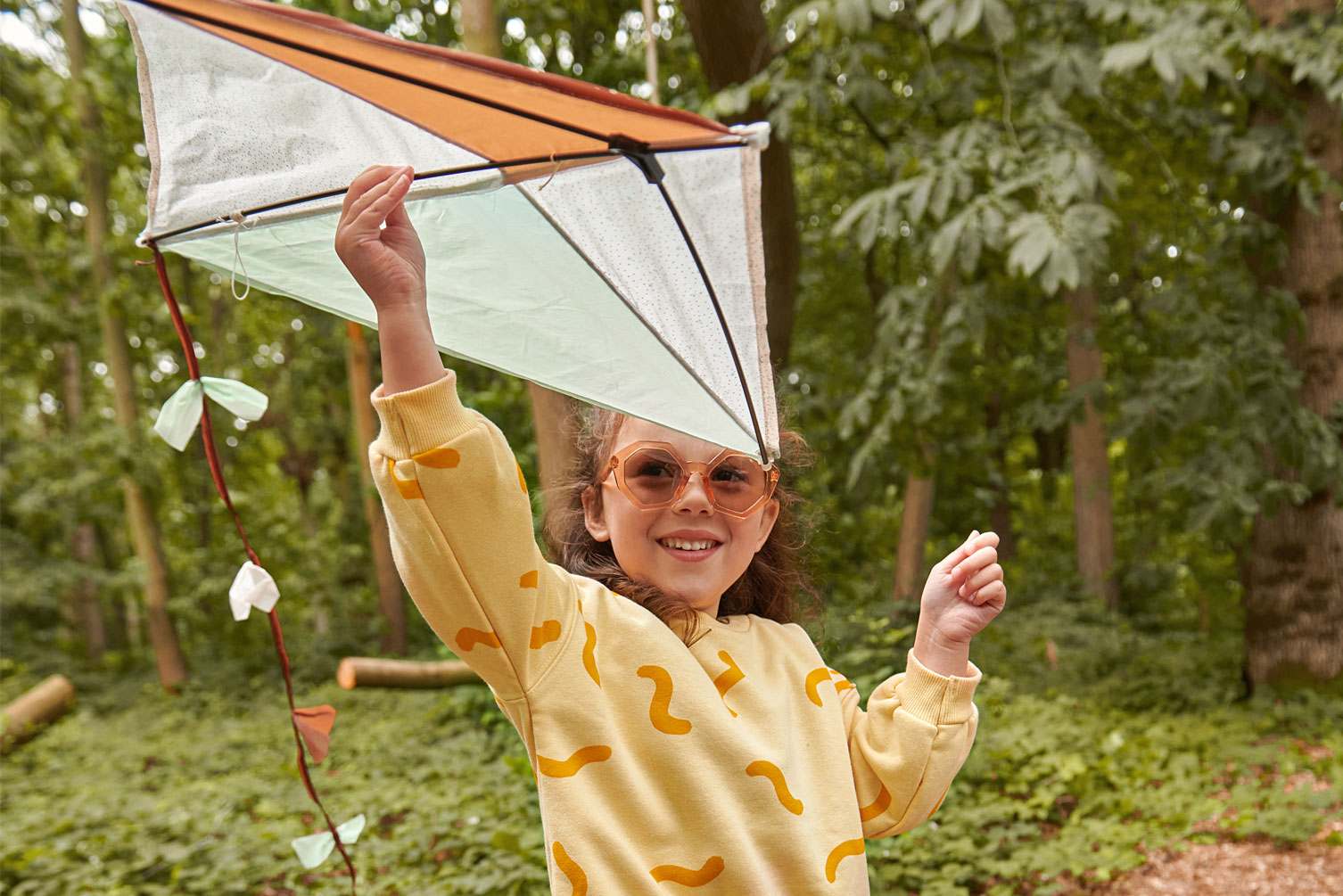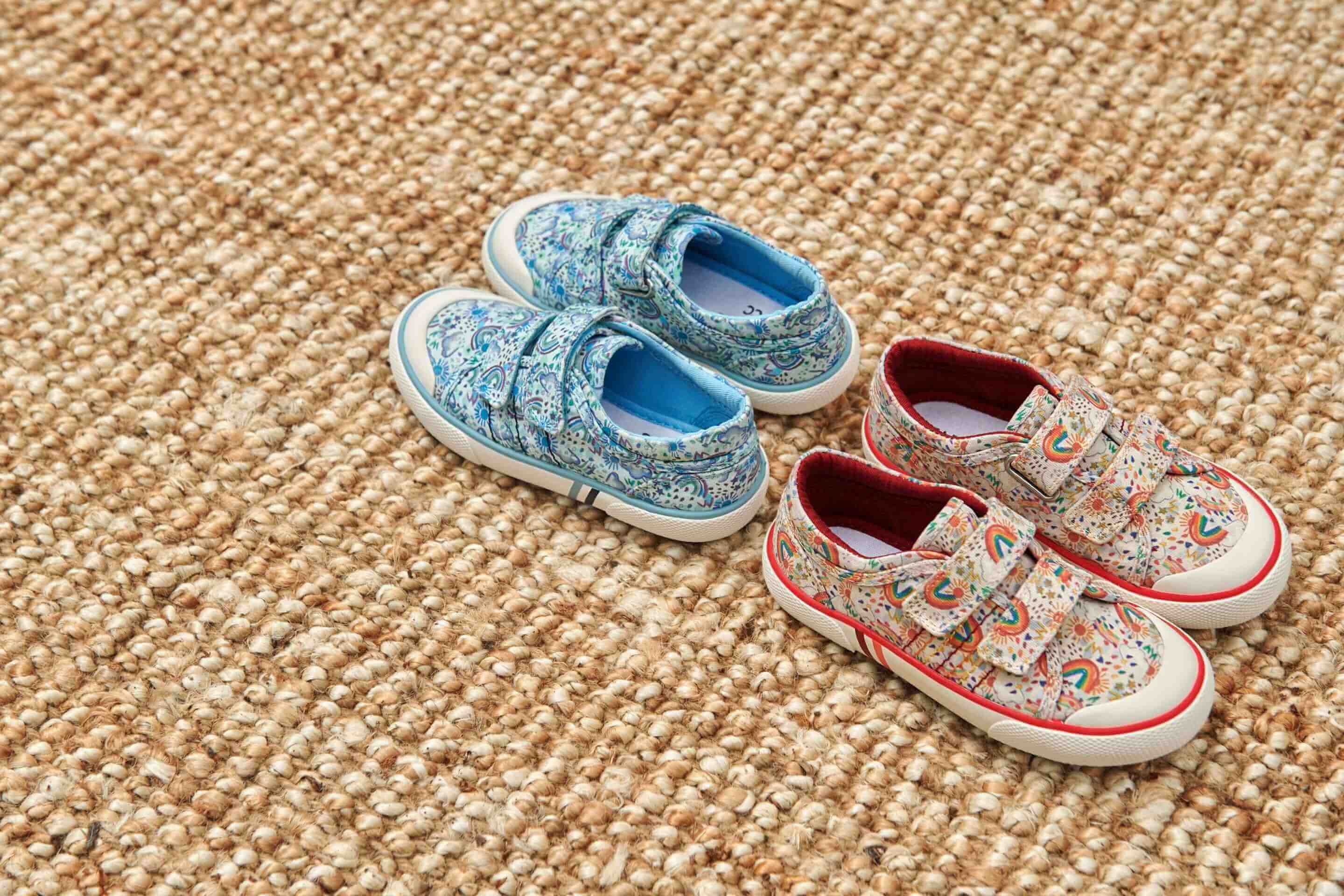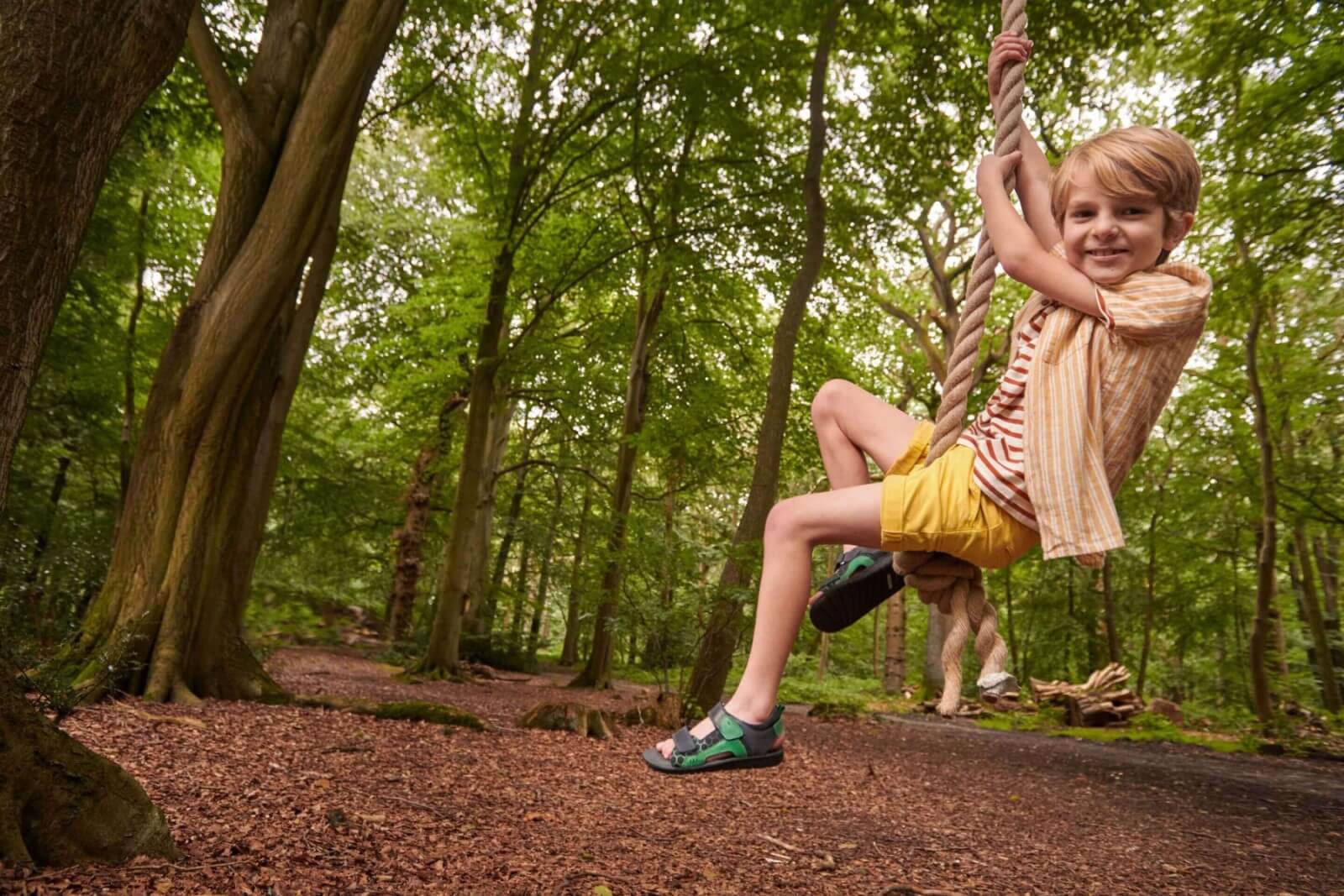
Throughout 2022, we are celebrating our 230th year at the forefront of footwear by supporting the NSPCC. Through fundraising activities, shoe donations and an exclusive footwear collection, we hope to provide a measurable impact to the NSPCC as they work to support children, young people and families.
Each year the NSPCC celebrates Childhood Day, a landmark day that brings people across the UK together for a day of play, fundraising and action to keep children safe. This year, Childhood Day is on Friday 10th June, and we’re excited to launch our exclusive new canvas style in time for the event to support the fundraising effort, with 10% of each purchase of the shoe donated to the NSPCC.
Central to Childhood Day is the theme: Play. In the NSPCC’s words:
"Play is, of course, fun. It’s how children explore the world and it’s the ultimate expression of the best of childhood. But it’s also powerful. Play can teach, inspire and even heal. Play can keep us fit, help us concentrate longer, be more creative and feel calmer and happier. You can play anywhere, on any budget. It gets us talking. It breaks down barriers and helps us to connect – children and adults alike."
At Start-Rite, we put children front and centre. We work very hard to understand how children develop and grow, how they move and interact and what will appeal to them. Children inspire our growth and development, motivating us to be the very best business that we can be.
During our research, we are fascinated by physical play and the opportunities that play provides for a child’s developing body and emotional wellbeing. Did you know that when a parent or carer is involved with a child’s physical play, providing purpose to a game, for example, chasing a flag, or running from one point to another, a child will develop a sense of confidence in their physical capability that can grow into an emotional and intellectual confidence as they mature?

Physical play is also very important in terms of allowing your little one to learn how to move. In their first five years, your child will develop a lot as they undergo big changes in their social, cognitive and physical skills. By the time they start school, most children are able to walk, jump, skip, run and hop all around the playground, having increased their body mass by 500%. And on top of that, they will have learned finer motor skills that allow them to use objects like bats, balls, pens and cutlery.
During the early stage of around 12 to 24 months, babies come on leaps and bounds in their physical development. This includes standing upright, taking their first steps and developing fine motor skills for engaging in specific activities like using toys and games. The NSPCC's Look, Say, Sing, Play resource is full of tips and activities to help develop your baby's brain. At this stage, a child’s muscles, nerves, bones, brain and reflexes are all developing at a rapid pace. Once the toddling stage has concluded, your child will be moving with much more confidence.
This represents a highly significant time of swift change for children as they learn an array of motor skills necessary to perform common physical tasks. Motor skill categories include balance, coordination, object control and locomotion - all things we as adults do every minute without even thinking about it. Being competent in these key motor skill areas by the age of three to five years has been shown to positively correlate with important health markers and adherence to physical activity later in life.
On top of that, time spent outside, playing with older children, free physical play without restraints and daily play with age-appropriate toys are all believed to contribute to improved development. Increased physical activity amongst this age group has been found to have a healthy, positive relationship with bone mineral density and cardiometabolic health indicators, in addition to encouraging an active lifestyle. Emerging evidence also suggests that organised sports have a positive impact on children of two to five years psychologically, socially and emotionally.

All in all, encouraging children under five to play freely and engage with a variety of stimuli – both for organised and unstructured play – will help them to develop a well-rounded array of motor skills and subsequently make them more likely to engage in physical activity in later childhood and adolescence.
This Childhood Day, we are proud to help the NSPCC get the UK playing by installing a canvas play tent featuring the fun TV character Tractor Ted in our outlet shop at head office. We want to encourage little adventurers who enter our shop to jump out of their strollers and explore inside, entering into their own world of imagination, inspired by Tractor Ted. Find out how else you can get involved.
Please also look out for NSPCC ambassadors on our social channels talking about how they use play in their everyday lives to support their own children’s healthy development.
Author: Stacey, published 06-07-2022.